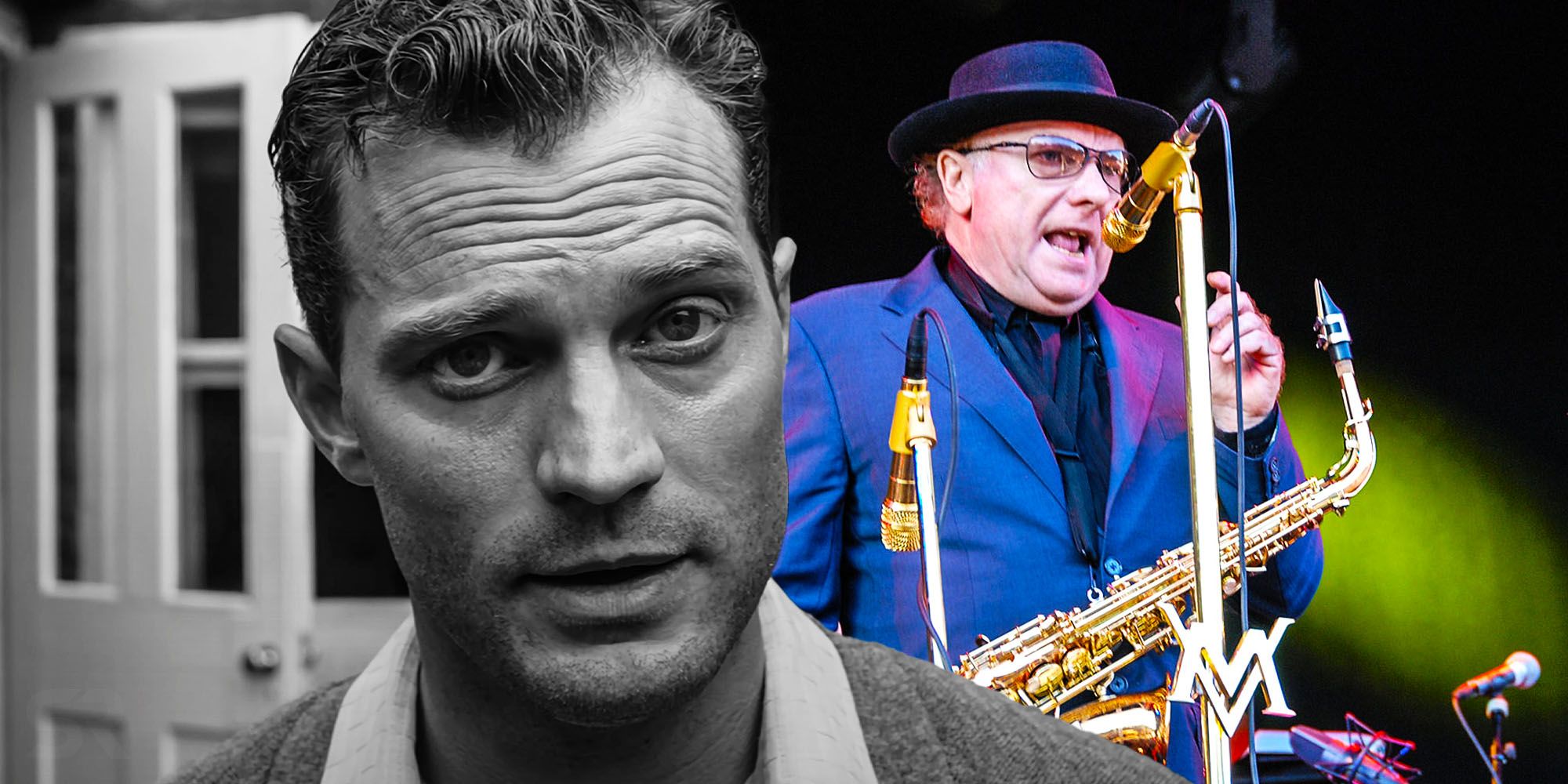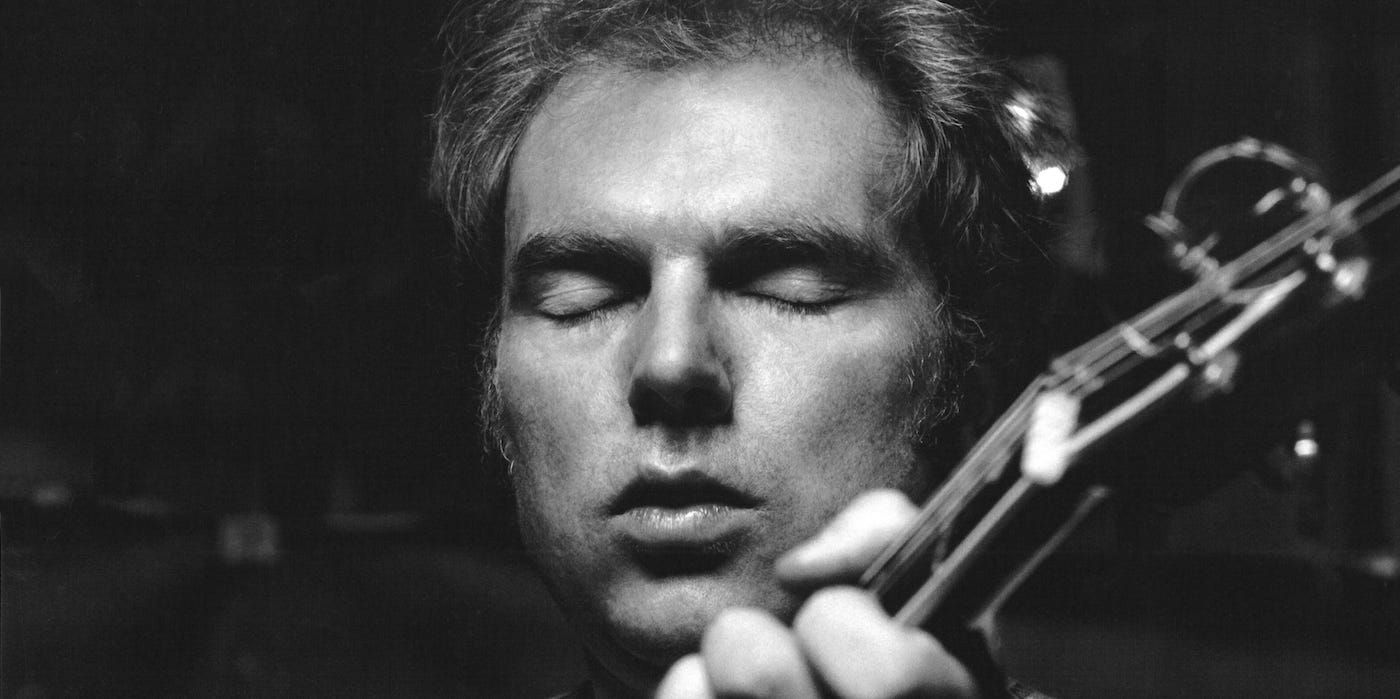Beyond providing a backing track, there is a very good reason for the amount of Van Morrison in the Belfast soundtrack. Winner of the Best Original Screenplay Oscar and nominated for six Academy Awards at the upcoming Oscars including Best Picture and Best Director, Kenneth Branagh's Belfast is a cinematic love story for his hometown, with every detail acting as a tribute to the city. As such, it makes sense that Van Morrison would populate the Belfast soundtrack.
Filmed in black-and-white, Belfast provides a deep dive into Branagh’s experiences as a young boy amid the turmoil of The Troubles in Belfast in 1969. Branagh’s story is told through the eyes of nine-year-old Buddy, whose life changes forever when riots break out on his street and he and his family are suddenly immersed in a war between Protestants and Catholics that Buddy does not understand. Through his eyes and his innocence, the audience experiences the confusion, pain, fear, and loss associated with life in wartime. While struggling to understand the battle outside his door, Buddy must also face the conflict happening in his home, with his parents’ marital problems worsening due to the civil unrest. Buddy’s father (played by Jamie Dornan) wishes to leave Belfast for a better, safer life in England, while his mother (played by Outlander actress, Caitriona Balfe) refuses to abandon the family’s roots in Belfast.
Throughout the movie, the bleating saxophones and gravely-voiced lyrics of Van Morrison’s music accompany Belfast’s most poignant moments. While the extensive use of Van Morrison's music might seem slightly surprising, considering the approach of other successful period dramas, there is a clear reason for its inclusion in Belfast: Van Morrison is a famous, Belfast-born legend.
Why There's So Much Van Morrison In The Belfast Soundtrack
Born in 1945, Van Morrison lived his early years only three miles from Branagh’s childhood home and Buddy’s home in the film, 96 Mountcollyer Street. By the time Branagh was living through the riots shown in Belfast, Van Morrison already had an established career with his East Belfast band Them, with hits including “Baby Please Don’t Go,” “Here Comes the Night,” and “Gloria.” He then began his solo career and released “Brown Eyed Girl” in 1967. It is likely that Van Morrison was the real-life local soundtrack of the times by 1969 – and, more importantly, the soundtrack of Oscar-winner Branagh’s childhood.
When asked about the collaboration, Branagh told Hot Press "...although there’s beautiful music in all parts of the island, and contemporary and many other classics, it was hard to think of doing a film about Belfast without acknowledging that particular voice." He went on to say that in discussing the project with Morrison, the rock artist seemed to want to vet Branagh, making sure that Branagh meant to honor the city and Van Morrison's classic sound. "I think he wanted to know my intentions were honorable, and that we wouldn’t mess with his sound. But, ultimately, he let us do some remixing for the soundtrack of some of the master recordings. He also wrote us a new song, ‘Down To Joy’, which opens the film – it’s magical."
Van Morrison’s music through Belfast (which also received an Oscar nod for Best Score) not only tells a tale of sadness and loss but also of love. Peppered throughout the film are scenes of the family bringing their couches and music players into the street to dance to Van Morrison's songs. This is central to the audience's understanding of Buddy's perspective on his neighborhood. Through Van Morrison's music, the viewer feels Buddy’s sense of community, family, and safety. Just as the film intends, the pairing of Van Morrison and the monochrome-filtered palette of Branagh's lense posits the movie as a conversation between generations that would resonate with folks who lived through The Troubles while opening the eyes of young Northern Irish viewers.
It is in one of these communal, celebratory moments that Buddy watches his parents reunite spiritually. Interestingly, the moment is an exception to Van Morrison’s dominance of the Belfast soundtrack, and the scene plays out to the song "Everlasting Love" by the London-based band Love Affair. The surprising exception seems to foreshadow Belfast’s ending and the family’s decision to emigrate – represented throughout by the music of Van Morrison – in search of a better, safer life in England. Belfast is a near-perfect symbiosis of a musical icon with one of Northern Irish theater and film culture's finest exports, Branagh, who rightfully won the Oscar for this heartfelt screenplay. While the screenplay will be the heart of the discussion around the movie, it'd be an omission not to talk about the power of the soundtrack alongside it. Van Morrison's tones transform the movie from a semi-biopic into a living document of a transformative historical period.


